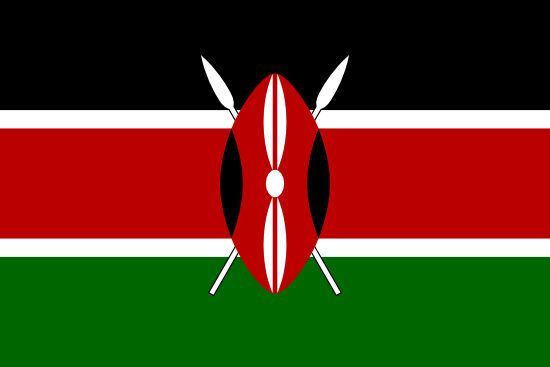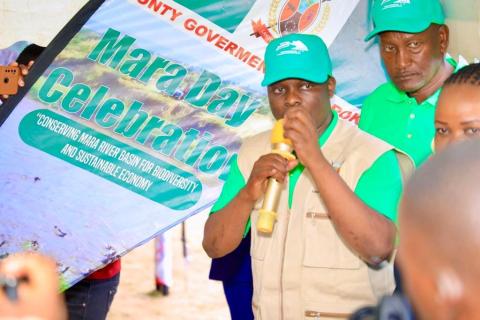Mara Day: Mara River Basin which is critical for the sustainability of Lake Victoria Basin
Kenya appreciates efforts undertaken by the East Africa Community (EAC) in the conservation of Mara River Basin which is critical for the sustainability of Lake Victoria Basin and the surrounding catchments thus supporting of millions of East Africans.
Kenya's re-committed to the conservation of the critical river ecosystem during this year's Mara Day, a Kenya-Tanzania cross-border event presided over by Tanzania's Mara Region Provincial Commissioner Mr Said Mohamed Mtanda at Sokoine grounds in Magumu, Serengeti District in Tanzania.
Mara Day is held annually on a rotational basis between Kenya and Tanzania since 2015 to discuss sustainable use of Mara River, a key source of water and livelihoods for over 1 million cross-border population, and a lifeline for the wildlife-rich Mara-Serengeti ecosystem that straddles the Kenya-Tanzania border.
The riparian East African Community Partner States comprising of Kenya and Tanzania have a shared heritage and a common interest in achieving sustainable development of Lake Victoria Basin (LVB) and specifically the transboundary Mara-Serengeti ecosystem.
The Protocols for Sustainable Development of Lake Victoria Basin provides the legal and institutional framework for the collaborative and sustainable management of the basin among EAC Partner States.
Recognizing that the Sectoral Council of Ministers for Lake Victoria Basin designated the 15th Day of September every year as Mara Day to coincide with the annual wildlife migration (recognized as the 7th world wonder) with a view to raising awareness on the significance and importance of conserving this critical shared ecosystem for posterity.
Tanzania and Kenya entered a Memorandum of Understanding for Joint Water Resources Management of the Transboundary Mara River basin.
Cognizant of the fact that as a transboundary ecosystem, the Mara-Serengeti ecosystem and Lake Victoria Basin in general continue to face various development and environmental challenges that require the concerted efforts of all stakeholders.
The following recommendations, agreed by for action by the two Governments, Devolved Governments and Local Authorities, Development Partners, Civil Society, Regional and International conservation agencies, Riparian Communities, Private Sector and the East African Community as appropriate to:
1. Promote and invest in climate-smart agriculture, nature-based solutions, Ecosystem-based Adaptation and renewable energy and energy efficiency to mitigate the negative effects of climate change on the riparian communities and Mara-Serengeti ecosystem.
2. Pursue and unlock private sector financing and investments to promote sustainable tourism, biodiversity conservation and pollution control in the Mara River Basin.
3. Identify and map major point source pollution hotspots and prepare a water quality investment plan for the Mara River.
4. Seek partnership for the application of Artificial Intelligence, Earth Observation, and other innovative technologies to support knowledge generation and ecosystem monitoring for decision support and sustainable management of the shared ecosystem.
5. Further strengthen the institutional framework for cooperative management of the transboundary Masai Mara-Serengeti ecosystem (by among others reinvigorating institutional structures, forums and instruments envisaged in the cooperative MOU such as the Transboundary Mara River Water Resources Users Forum, the Joint Technical and Coordination Committees, among others).
6. Initiate a Water Fund (Watershed Investment Program) for the Mara River Basin to enhance water security and optimally support conservation of the Transboundary Masai Mara-Serengeti ecosystem while at the same time empowering women, youth and other marginalized groups for more inclusive and sustainable development.
7. Make budgetary provisions and prioritize interventions in the Mara-Serengeti Ecosystem as well as the Mara Day Celebrations in our respective budgets.
8. Intensify and diversify resource mobilization initiatives for a broad-based multi-sectoral and multi-stakeholder transboundary programme to catalyze sustainable management and development of Masai Mara-Serengeti ecosystem.

